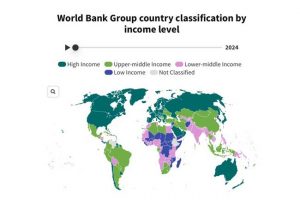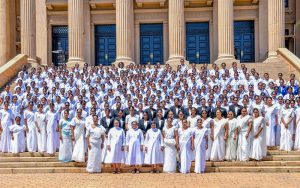President & Government rebukes SC and undermines public security by refusing to appoint acting IGP

The President’s deliberate delay in appointing an Acting IGP can be seen as inciting a constitutional crisis that weakens the rule of law and public security, according to a joint statement issued by 142 individual activists and 31 organizations. We condemn these undemocratic measures and abuse of power by the President and the government,” they say.
Since the date for holding the presidential election has been decided, the upcoming period in Sri Lanka will be a period in which the responsibility of the Inspector General of Police is well needed.
“We also note that this abuse of power is simply the latest anti-democratic manifestation of the office of the Executive President that has plagued Sri Lankan politics for too long. A genuine candidate who promises to abolish this institution would be worthy of our votes.” they mentioned in the joint statement.
At 9.30am on 24th July 2024, having heard all parties in nine petitions challenging the appointment of the Inspector General of Police (IGP) in Sri Lanka over six days, the Sri Lankan Supreme Court decided that the appointment of the IGP appeared prima facie to be unconstitutional and the decision must be fully reviewed.
The Court ordered that until this was resolved Deshabandu Tennakoon be restrained from functioning in the office of IGP. The Supreme Court also noted that the President may appoint an Acting IGP in the interim. There is no ambiguity about the Supreme Court’s order. If the Supreme Court finally determines that Deshabandu Tennakoon’s appointment was unconstitutional, this would mean that this appointment was not valid. The cases before the court relate to the appointment and have nothing to do with the removal of the holder from the office of IGP.
According to the statement, as a party to all the nine petitions challenging the IGP’s appointment, the President knew that interim orders were sought by Petitioners to restrain Mr. Tennakoon from acting in office. Despite this, following the order being made, the President deliberately failed to act urgently and responsibly to recommend a suitable person to the position of Acting IGP. This delay appears designed to accommodate the announcement of dates for the presidential election. Subsequently having made his deposit to contest in the election, the President has announced that he will not appoint an acting IGP as he states he has been advised that it would purportedly lead to election petitions against him.
The delay on the part of the President in appointing an Acting IGP is in stark contrast with the haste in which he acted to install Deshabandu Tennakoon as IGP just four days prior to when his 3-month appointment as Acting IGP (also being contested in the courts at the time) was due to lapse.
The President’s recommendation of Deshabandu Tennakoon as IGP was made by a letter dated 25th February, and received by the Constitutional Council on 26th February 2024 to be taken up on the same day under ‘any other business’ at the Constitutional Council.
“The President by deliberately delaying taking steps to appoint an Acting IGP can be said to be provoking a constitutional crisis that undermines the rule of law and also public security.” petitioners stressed.
“On 26th July 2024, the Prime Minister made an announcement in Parliament on behalf of the government claiming that the interim order by the Supreme Court was not valid in law and that the decision of the Council could not be reversed by the court, and as such that the last holder of the office of IGP will continue to function regardless of the Court order. The Prime Minister further stated that the Supreme Court by making the order had undermined the supremacy of parliament. These statements conflated the Constitutional Council with the Parliament. The public cannot be misled that the Judiciary lacks the power to inspect the decisions of the Constitutional Council, when in fact the Judiciary does. The decisions of the Council are explicitly subject to review (article 41J of the Constitution) while those of Parliament are explicitly not. The position taken by the Prime Minister in his speech on 26th July 2024 had already been put forward as an argument before the Supreme Court, but the Court as the final arbiter of the interpretation of the Constitution, did not see merit to dismiss the cases on that basis. This is also not the first time that the Supreme Court is reviewing a decision of the Constitutional Council.” petitioners explain.
Also, the joint statement clearly says that any attempt to extend the supremacy of parliament to cover decisions of the Council is an attempt at false equivalency, constitutional confusion, and mischief. Furthermore, the Supreme Court has clearly determined that an amendment to remove judicial scrutiny over the Council would be a taking away from citizens their judicial power, and would violate their right to equal protection of the law, they mentioned.
“The President and government must cease these tactics of creating confusion, of misleading the public on the law, destabilising democratic process, undermining the Supreme Court and the judicial power of the people, disrespecting the rule of law and signalling tacit intent to wilfully not comply with the law” emphasizes.
Recognizing that this abuse of the powers of the Executive is aimed at influencing the outcome of the upcoming Presidential elections, Petitioners remind all candidates and our fellow citizens that any Presidential candidate who seeks to violate the clear intent and letter of the constitution and threatens the democratic traditions of this country must be denied our votes.
END.









